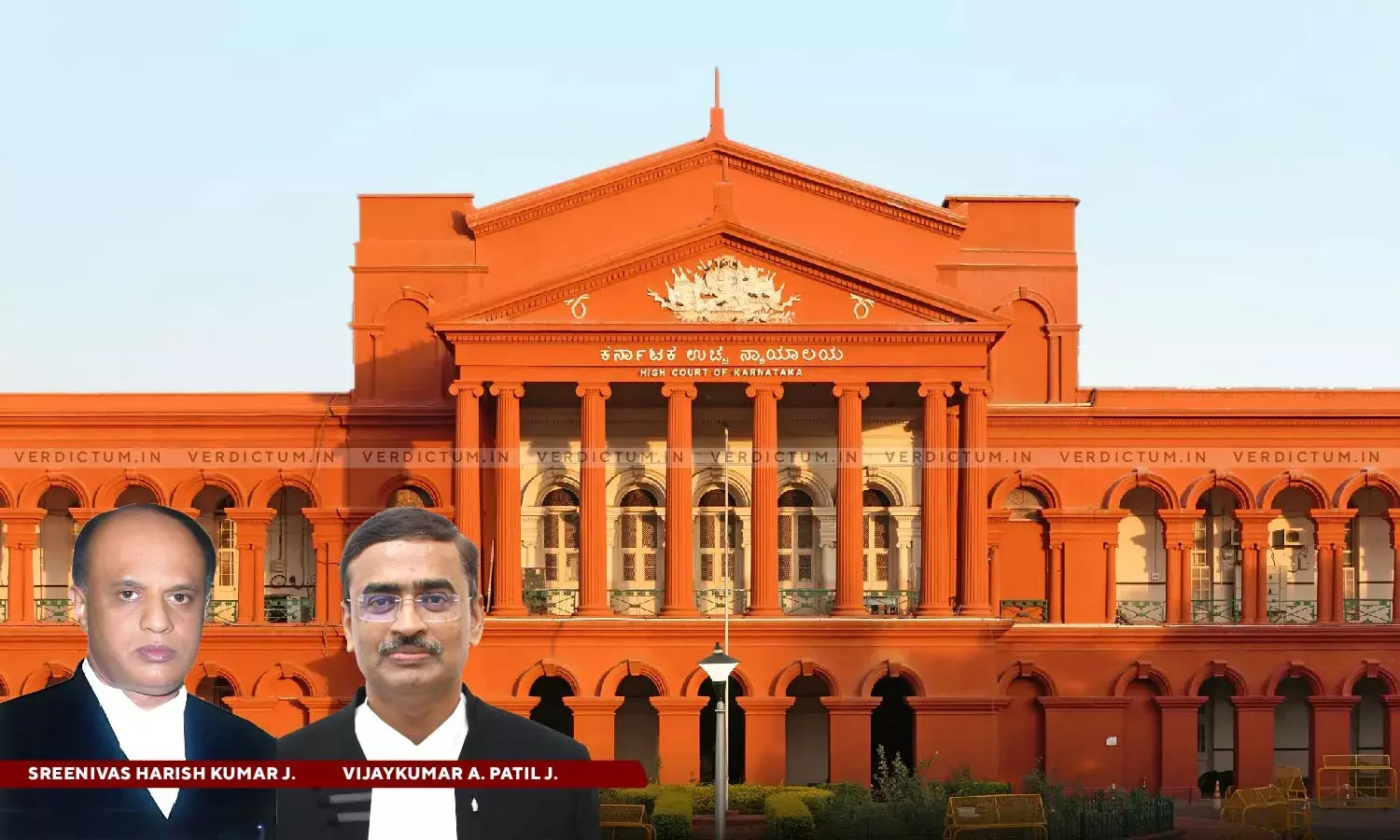Section 33 Evidence Act Does Not Imply That Absolute Reliance Can Be Placed On Previous Evidence Given By Witness Whose Presence Cannot Be Secured At Later Stage: Karnataka HC
The Karnataka High Court observed that Section 33 of the Indian Evidence Act does not imply that absolute reliance can be placed on previous evidence given by a witness whose presence cannot be secured at a later stage of the proceedings.
In that context, the Bench of Justice Sreenivas Harish Kumar and Justice Vijaykumar A Patil observed that, "According to Section 158 of the Indian Evidence Act, all matters either to contradict or corroborate the statements under Section 32 or 33 may be proved in order to impeach or confirm the credit of the person who made such statement. The expression, “for the purpose of proving the facts which it states” in Section 33 does not imply a meaning that absolute reliance can be placed on the previous evidence given by a witness whose presence cannot be secured at a later stage of the proceedings."
In light of the same, it was held that, "merely for the reason that PW1 was not cross-examined by the defence counsel, it cannot be said that the evidence of PW1 is fully reliable . It is true that PW1 was very much available for cross-examination soon after conclusion of examination in-chief. The evidence of PW1 must be subjected to scrutiny, and it must appear to be truthful. It must find corroboration from other evidence which the prosecution has placed before the Court."
Addl. SPP BN Jagadish appeared for the appellant, while Senior Advocate MT Nanaiah, Counsel MRC Manohar and Counsel Rachitha Nanaiah appeared for the respondents.
In this case, PW1, filed a report with the police stating that accused No.1 and others kidnapped him near Adiga’s Hotel in Jayanagar, Bengaluru. They took him to Anekal, where he was coerced into signing a sale deed. The attempt to register the deed failed that day, leading to his overnight detention at accused No.1's house. The next day, under threat, he was taken back to Anekal for registration. Despite his pleas for help, nobody assisted him at the Sub-Registrar’s office. The petitioner, physically weak and mentally disturbed, couldn't protest strongly. The demand draft for Rs.63 crores given to him was forcibly taken back. He was released and prevented from contacting anyone.
Based on this report, an FIR was registered for offences under Sections 364, 342, and 506 read with Section 34 of the IPC. Two accused persons faced trial for various offences under the IPC.
After considering all evidence, the Trial Court found the prosecution failed to prove the guilt of the accused. The court acquitted them of all charges. The State appealed the decision.
During the appeal, the State argued that the trial court overlooked key evidence presented by several witnesses. They contended that PW1, the victim, had given a detailed account of the incident and that his testimony should be relied upon.
On the other hand, the defence argued that PW1's testimony was unreliable and lacked corroboration. They pointed out contradictions and improvements in the statements of other witnesses, undermining the credibility of the prosecution's case. The defence emphasized that Section 33 of the Indian Evidence Act should not be applied, as PW1's testimony was inherently improbable.
The Court observed that, "if all the evidence of PW1 in the examination-in-chief is subjected to scrutiny in the light of evidence given by other witnesses, we do not find that the testimony of PW1 is trustworthy."
In light of the same, the High Court upheld the findings of the Trial Court, and dismissed the appeal.
Appearances:
Petitioner: Addl. SPP BN Jagadish
Respondent: Senior Counsel MT Nanaiah, Counsel MRC Manohar, Rachitha Nanaiah
Cause Title: State of Karnataka vs Nagendra Reddy & Anr.
Click here to read/download the Judgment




